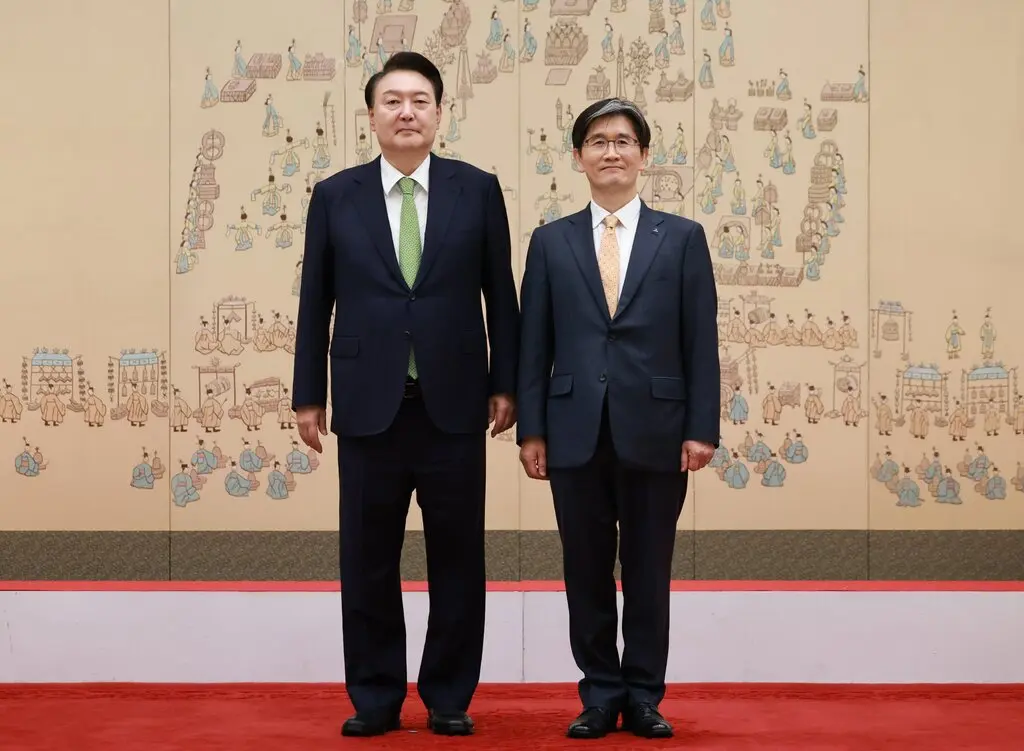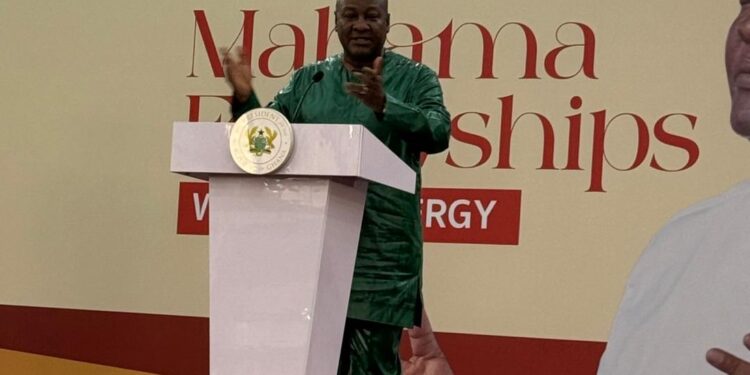South Korean President, Yoon Suk-yeol has been banned from leaving the country over a failed attempt at imposing martial law, amid growing calls for him to step down and a deepening leadership crisis.
Oh Dong-woon, the head of the Corruption Investigation Office for High-ranking Officials, said on Monday, December 9, 2024, that he ordered a ban on foreign travel for Yoon when asked at a parliament hearing what actions have been taken against the embattled President.
A Ministry of Justice official, Bae Sang-up, told the committee that the travel ban order has been executed.
The justice ministry’s quick acceptance of Oh’s request shows how Yoon is losing his grip on his own government.

On Saturday, December 7, 2024, Yoon issued an apology over the decree, saying he would not shirk legal or political responsibility for the move, which was born of “desperation.”
Yoon’s People Power Party (PPP) staged a walkout of the chamber before a vote to impeach the president on Saturday, prompting accusations of being “accomplices to insurrection” after the motion failed.
On Sunday, December 8, 2024, PPP leader Han Dong-hoon said that Yoon would be excluded from foreign and other state affairs, and Prime Minister Han Duck-soo would manage government affairs until Yoon eventually stepped aside.
The decision to delegate presidential authority to the Prime Minister has plunged Asia’s fourth-largest economy into a constitutional crisis.
South Koreans are unsure who is governing the country with Mr. Yoon largely absent from view.
It remains to be seen how long the governing party would be able to maintain the scheme, which has caused uncertainty over who is in charge.
Meanwhile, the defence ministry said that Yoon was still legally Commander-in-chief.
After the martial law declaration, Yoon’s approval rating dropped by nearly eight points to 17 percent, its lowest level during his term, according a survey released on Monday by Realmeter, a South Korean polling company.
His party, which boycotted the impeachment vote, also took a hit, its approval rating dropping by six points to 26.2 percent.
Opposition Accuses Ruling Party Of Staging “Coup”
Also on Monday, South Korea’s opposition accused the governing party of staging a “second coup” by clinging to power and refusing to impeach Yoon.
Democratic Party floor leader, Park Chan-dae said that claiming that the President can remain in office but has delegated his powers to the Prime Minister and the PPP leader – who is not an elected official – is “a blatant constitutional violation with no legal basis.” “This is an unlawful, unconstitutional act of a second insurrection and a second coup,” Park said, urging PPP to “stop it immediately.”
Yoon has refused calls, including some from within his own party, to resign, and his future looked more uncertain on Thursday when a team at the National Police Agency launched an investigation into the president for alleged treason.
While a sitting South Korean President has immunity from prosecution while in office, that does not extend to allegations of rebellion or treason.
Yoon has maintained martial law was necessary, accusing opposition members in the National Assembly of launching an unprecedented number of impeachment efforts against members of his administration, effectively paralysing key operations of government, and of handling the budget in a way that undermined the fundamental functions of the government, including public safety.
The turmoil in Seoul comes at an important geopolitical moment in the region, with North Korea allegedly sending troops to help Russia’s war against Ukraine amid growing military ties between Moscow and Pyongyang.
READ ALSO: Bright Simons Bemoans Decline in Political Discourse, Urges Return to Rigorous Analysis




















